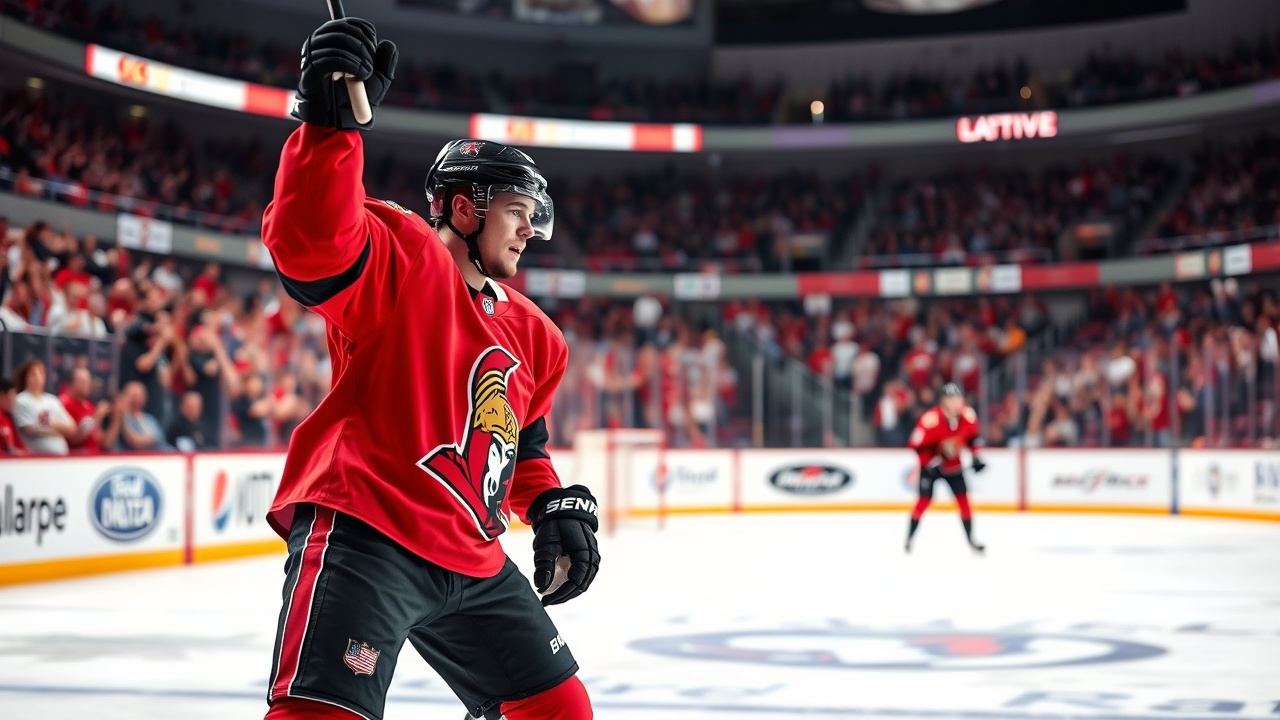Ottawa Senators vs. Montreal Canadiens: A Clash of Accountability
In a recent matchup at Bell Centre, the Ottawa Senators faced off against the Montreal Canadiens, concluding with a 4-3 overtime defeat. During the game, Senators forward Nick Cousins found himself engaged in a physical altercation with Habs defenseman Jayden Struble in the game’s final period. This fight was more than just a skirmish; it was a response rooted in a sense of accountability following an earlier incident involving Cousins and Canadiens’ rookie Ivan Demidov during a preseason game.
Retribution and Accountability
Struble revealed post-fight that he sought retribution for Cousins’ aggressive slash on Demidov on September 30, which had left a mark on the Canadiens. He conveyed the sentiment shared by his team:
“When you have a guy like that taking a shot at your young star player, that was a bad play. We were thinking about it. You can’t just go around trying to hurt our best players.”
Despite being taken out of the game due to the punch Cousins absorbed, he appeared relatively unscathed when facing reporters at practice the following Monday. During this press interaction, Cousins accepted partial blame for his actions in the earlier game, stating:
“Sometimes you gotta answer the bell for your actions. I’m glad that Demidov is okay, but I definitely need to take better care of my stick. It’s over with, and we kind of move on now.”
Although Demidov’s injury turned out to be negligible, the slash was steeped in intention, warranting Struble’s reaction. The altercation elevated the ongoing exchange between teams into what can be termed ‘frontier justice’, a concept established in professional hockey where players seek to manage grievances through physical confrontations rather than through official league disciplinary measures.
The Cycle of Retaliation
This standoff is reminiscent of an old Western, where Canadiens teammates urged Struble to deal with Cousins following his earlier actions. If Cousins hadn’t accepted the challenge, he would likely have faced ongoing hostility in future encounters on the ice. Losing this bout appears to resolve the matter, as a successful fight by Cousins might have instigated further retaliation rather than an end to the feud.
It’s crucial to contextualize Cousins’ slash within the chain of events from that previous match, where Senators rookie Carter Yakemchuk was violently attacked by Canadiens player Florian Xhekaj. In the hockey community’s intricate unwritten code, possible responses included retaliating against Xhekaj or targeting Cousins instead, which is precisely the route that Cousins opted for. It illustrates the complex interrelations and revenge cycles typical in the NHL’s culture.
The Debate on League Discipline
Some would argue that if the league enforced stricter penalties for such dangerous plays, this dilemma could diminish. However, the reality of the situation often diverges from this possibility. For instance, an exaggerated suspension aimed at Cousins’ initial transgression would likely provoke fierce backlash from the NHL Players’ Association, which prioritizes player salaries over safety. Further, should Cousins have faced a stringent penalty, there’s little doubt that Struble or Xhekaj would still have pursued him afterward, reiterating the persistent cycle of retaliatory justice that defines the sport.
Conclusion
Ultimately, while discussions around potential solutions to this aspect of the NHL’s culture persist, a shift towards reducing fighting seems unlikely, given the longstanding approval among league officials. Thus, the toxic mix of dirty plays and the ensuing vigilantism will remain an integral part of hockey, reflective of the challenges facing the sport’s governance.
In conclusion, the ongoing saga between the Senators and Canadiens highlights the complexities of frontier justice in hockey, revealing how actions on the ice are often interlinked with prior confrontations and the informal disciplinary measures players take into their own hands.
For ongoing updates on these teams and other NHL news, stay tuned to The Hockey News.




